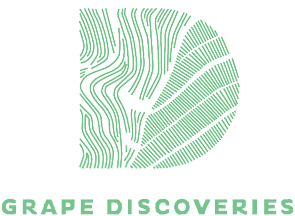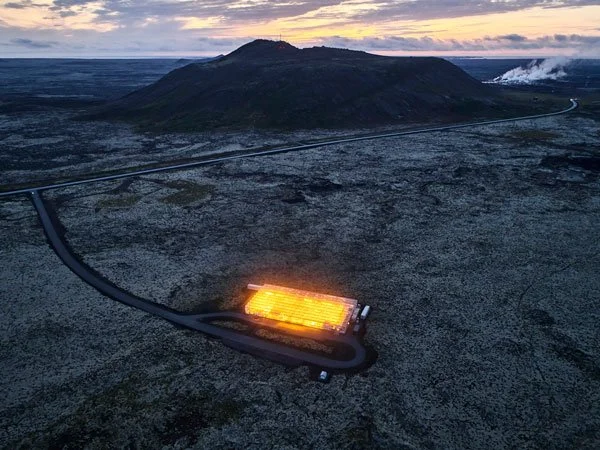4TH EDITION - PORTO PHOTOGRAPHY BIENNIAL: TOMORROW TODAY
Lightseekers, Centro Português de Fotografia. © Pedro Sardinha / Courtesy of Bienal'25 Fotografia do Porto.
Bienal’25 Fotografia do Porto opened in Porto on May 15, with as this edition’s theme ‘Tomorrow Today’, positing the idea the future is rooted in the present. Bienal’25, the fourth since its inception, includes 51 artists and artist collectives, many from outside Portugal, with exhibitions by 14 curators at 16 venues across the city of Porto. The program is enriched by activities, including talks, conferences and tours, all open to the public free of charge.
Why a photography Bienal? Photography has the particular capacity to revision our world and propose alternative realities. Bienal’25 redefines through photography our expectations of the familiar to mirror, subvert, record, extract, manipulate, appropriate and transform expected realities and propose alternative imaginaries.
The Bienal has invited participating artists and curators to consider the relationship between our present actions and their future consequences. The Bienal’s website states ‘Tomorrow Today imagines a more regenerative and interdependent world, calling for artistic and collaborative practices that engage with the urgencies of the present while rehearsing possible futures’. The Bienal incubates encounters between artists, curators and cultural, social and governmental organisations at the intersection of artistic research, curatorial practice and public engagement.
Virgilio Ferreira. Courtesy of the artist.
Virgilio Ferreira, a photographer, is Director General of the Bienal. Ferreira has established the Bienal as an important cultural event in Portugal and a leading international initiative in the expanded field of photography. Ferreira and Australian Jayne Dyer co-artistic direct Bienal’25 in a belief that shared artistic direction promotes a more inclusive extensive vision of programming. Ferreira and Dyer speak of the importance of not being driven by ‘spectacle’, but by ‘cause’. For Ferreira a main focus has always been support for grassroots initiatives with artists at the beginning of their careers, through multi-disciplinary immersive programmes.
Photography has been a part of Ferreira’s family DNA for a century. «About 100 years ago, my maternal grandfather opened a photographic studio in Porto, a kind of laboratory for professional photographers. When he died my mother took over the project. As a child, I loved the atmosphere at the end of the day when collectors stopped by to talk about photography», Ferreira recalls.
«My first trip around Portugal, a road trip when I was 18 and had just passed my driving test, had a huge impact on me. All my travels and studies in different countries have influenced my life and career. Although, in an empirical manner I’ve been a sociologist, I could say I’m more of an ethnographer».
It is perhaps this interest in people that has driven Ferreira on his life-journey of enquiry, empathy and activism.
In 2015 Ferreira founded Ci.CLO in his home city of Porto. This year marking its tenth anniversary, Ci.CLO’s social and environmental arts projects have a national and increasingly international reach.
The Ci.CLO office, which serves as the production hub for the Bienal de Fotografia, is located near the Municipal Library, in central Porto. A cabinet contains a collection of vintage cameras, testimony to the family photographic business. Ferreira juggles ideas and a multitude of projects throughout Portugal with frequent travel to international cultural events. I ask him if he believes art can make a difference.
«Yes, art can definitely make a difference. Through its sensors and antennae, art can predict things which haven’t yet happened, or not even been thought about. Photography has the power to generate dialogue. With its capacity to ‘get under the skin’, it can provoke».
Ferreira explains Ci.CLO was born from the need to evolve from a personal perspective as an artist, to a more collective approach with potential to contribute to a bigger cultural picture. «Ci.CLO’s mission is to challenge people to rethink our relationship with the world, through photography, and equally to create a platform for exchange. We’re in constant dialogue with other fields such as science and technology not directly related to culture and, in this respect we’re similar to a research lab. There aren’t many photography festivals around the world that have our laboratory dimension. It’s always been important for us to project into the future, in a practical manner, through case studies that may provide models for others to adopt».
«The Bienal Fotografia do Porto came into being because we see the medium of photography as central to our understanding of the world and we could achieve a greater impact through a two-year programme, with more partners, to activate the city and reach a much wider audience».
The Bienal’25 Fotografia de Porto’s wide and inclusive program is arranged around four interconnecting platforms, areas of enquiry for collaborative research, territorial mediation, residencies and exhibitions: CONECTAR (to bridge, to exchange), SUSTENTAR (to sustain, to preserve), VIVIFICAR (to live, to stay), and EXPANDIR (to expand, to grow). The Bienal embraces rural and urban, local and international, engaging with ecology, technology, memory and affect, looking towards the future with a lens that is critical, speculative and attentive.
Future Studies, 2025. © Luca Locatelli
«CONECTAR is about exchange. We receive exhibitions from international partners, and export the work we develop in our own programs. We exchange resources, knowledge and methodologies, and this gives an international dimension to our projects. I strongly recommend a visit to The Portuguese Center of Photography to see Light Seekers, an important metaphor in this uncertain period. Curated by Sergio Valenzuela-Escobedo, five exhibitions explore through the lenses of Claudia Andujar, Pariacaca, Hoda Afshar, Christo Geoghegan and SMITH erased histories and acts of resistance to colonial legacies». In Future Studies at the Leica Gallery, Luca Locatelli investigates survival strategies for the enormous environmental crises we confront, questioning unlimited economic growth and focusing on energy recovery and the future of food production.
Rhizomes, 2025. © Joana Dionísio
SUSTENTAR is a research program focused on case studies about sustainability in Portugal in which artists develop new bodies of work in conjunction with specialist researchers in sustainability initiatives, in a spirit of dialogue. These artist projects propose concrete and experimental responses to identified challenges. In the Álvaro Siza designed São Bento metro station, Rhizomes, Joana Dionisio’s photographic installation, highlights human presence and activism as driving forces to generate awareness of population diversity within the Algarvensis Geopark’s initiative in Southern Portugal. In A Lake Above the Desert Gonçalo C. Silva reflects on natural and interventionist tensions around a government initiative in the Alentejo to bring water to a fragile area of Portugal involving Europe’s largest human-made lake.
Raw Material, 2025. © James Newitt
VIVIFICAR contributes a perspective on Portugal’s rural Douro region, a fragile ecosystem of ageing and decreasing population. Over a six-month residency, artists have opportunities to live with a family, share their daily life and experience cultural and community identity. Australian artist James Newitt’s video installation Raw Material, developed in Mêda, at the National Museum Soares dos Reis, explores mining and viticulture, two facets of the complex socio-economic dilemmas challenging the Douro. Lara Jacinto, in Sabrosa, focuses on identity through recent migration, including displaced Ukrainians and South Asians seeking work, in a region historically marked by emigration.
No tempo das cerejas, 2025. © Lara Jacinto
EXPANDIR is a speculative, experimental platform that supports emerging artists in their transition between the academic and professional worlds. «Among this year’s five Expandir projects, we have partnered with the Royal College of Art (RCA), in London. Curated by Locument, the student collective ADS11 developed The Extraterritoriality of Toxicity, on the quality of the water in the Douro River. The project has an experimental, disruptive, activist dimension. We have created a bridge between the RCA and universities in Portugal, including the University of Tras-os-Montes and Alto Douro (UTAD) and the University of Porto». Bienal’25 also partners with Futures, the European Union’s photography platform, showcasing the travelling exhibition Ties that Bind; seven emerging artists explore contemporary forms of identity and affinity.
Ties that Bind, Casa Comum, Reitoria UP. © Pedro Sardinha / Cortesia Bienal'25 Fotografia do Porto.
The Project Room, part of the extensive public program offered, brings together students who have completed their studies and are wondering what to do next. Ferreira expands: «we provide these students with mentorship. There’s a transitional space between the academic and professional worlds, and sometimes young people can experience difficulty engaging in the real world. We offer a grant to produce a portfolio, and coach the artists on how to present to a gallery, museum or arts magazine, when speaking and writing about their work. We partner with seven arts faculties to support seven artists, all of whom are presenting their work in this year’s Bienal». A public presentation will be hosted at the Batalha Film Center on June 13.
Multiple threats to the planet and humans’ continued existence on it compete for our attention with the dynamic advance of populism that threatens to atomize and desensitize societies. As a cultural producer, does Ferreira feel threatened? «We need to resist and be resilient, and this means we need to act. If we consider America’s current disruptive political proposals, for example, I think there’s a very clear intention to generate fear. I don’t want to give power to this mindset. We need to propagate different forms of energy, not just energies of anger and fear». The title of the Bienal in 2023 was ‘Acts of Empathy’. These ‘acts’ give Virgilio Ferreira hope. Bienal’25 Fotografia do Porto, showing until June 29, provides a timely opportunity to reflect on our collective ‘Tomorrow Today’ and perhaps also experience hope.
First published in Arte Capital, May 2025








